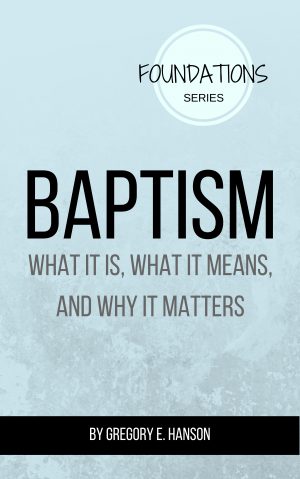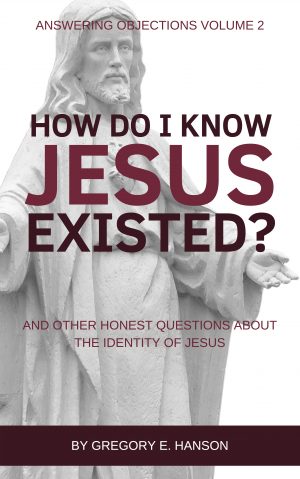
Fasting finds its roots in the first books of the Bible in the Law of Moses, centuries before the Christian Church was born. Throughout the Old Testament, fasting continued to be practiced as a time-tested spiritual discipline. David fasted for the life of his child, the Jewish people fasted after Haman’s plot to eradicate the Jews was revealed, and the city of Nineveh fasted to be forgiven for its wickedness.
By the first century AD, fasting was commonplace. The disciples of John the Baptizer fasted, as did the the Pharisees. As different as they were theologically, they held this spiritual practice in common. In fact, when the disciples of Jesus did not also fast, John’s disciples questioned Jesus about it:
“One day the disciples of John the Baptist came to Jesus and asked him, ‘Why don’t your disciples fast like we do and the Pharisees do?’ Jesus replied, ‘Do wedding guests mourn while celebrating with the groom? Of course not. But someday the groom will be taken away from them, and then they will fast’” (Matthew 9:14-15, NLT).
Jesus’ disciples did begin fasting following His Ascension, and His followers have continued to practice fasting ever since. Martin Luther, John Calvin, John Knox, Jonathan Edwards, Charles Finney, John Wesley… throughout the history of the Christian Church, fasting has been recognized as a vital (even necessary) habit of holy living.
But why? What makes fasting such a valued spiritual habit? Consider these five benefits you can experience through fasting:
1. Fasting helps you keep/restore balance in life.
Cravings demand to be satisfied, and we can easily become enslaved to them. Even something as good and necessary as food can gain an unhealthy control over us.
Fasting helps us keep these cravings in check, preventing them from interfering in our relationship with God. It may begin as a physical act, but it has spiritual implications. By fasting from our physical desires, we are better able to satisfy our craving for God.
2. Fasting prepares you to hear from God.
In Deuteronomy 9, Moses reported that he fasted for 40 days on Mount Sinai, seeking God’s agenda for the Israelites. During that fast, God gave Moses the Ten Commandments.
In the New Testament, believers were fasting and worshipping together when God instructed them to commission Barnabas and Paul for special ministry (Acts 13). After further fasting and prayer, the two were sent on their first missionary journey. As a result, the Christian faith spread beyond the Jewish community, changing the world in the process.
Fasting can help you hear from God and sense His leading in your life. When you are in need of direction, fast.
3. Fasting adds passion to your prayer.
The Bible records multiple times when individuals or entire nations were in trouble and in need of God’s power to intervene. To demonstrate this need, the people would fast and pray. Fasting reinforced the urgency of the request.
To clarify, fasting should not be viewed as a means to manipulate God. Even when you pray and fast sincerely, God will still act according to what He deems is best. (For example, 2 Samuel 12 describes how King David fasted and prayed passionately but did not get what he wanted.)
Fasting may allow you to pray with more power and more passion, but it does not make God your puppet. Rather, it enables you to become more attuned to the heartbeat of God. By so doing, your prayers become more focused and better synced with God’s will.
4. Fasting expresses repentance and brings renewal.
As an act of humility (see Ezra 8:21), fasting can express sincere sorrow for our sinfulness. By humbling ourselves before God, we become eligible for the renewal that comes from His Spirit. “Then if my people who are called by my name will humble themselves and pray and seek my face and turn from their wicked ways, I will hear from heaven and will forgive their sins and restore their land” (2 Chronicles 7:14, NLT).
During the Methodist Movement of the 18th and 19th centuries (which began through the ministry of John Wesley), England was transformed by the renewing work of God. In North America, the Wesleyans/Methodists became the fastest growing group of Christians in history.
Wesley Himself attributed the growth of Methodism directly to the habit of fasting. Every Methodist was urged to fast twice a week—every Wednesday and Friday. In fact, Wesley refused to ordain anyone who did not fast accordingly.
God responds to our fasting. When we express true repentance through fasting, renewal comes.
5. Fasting leads to maturity and greater effectiveness.
Growth in any area of life requires investment. You do not become a concert pianist overnight, nor do you learn to golf accidentally. The ability to type 60 words per minute only comes after hours and hours of practice.
You do not grow spiritually without investing yourself, either. Fasting is a primary way to invest in your own spiritual growth.
Though many people designate the season of Lent as their time for fasting, it can be practiced at any time of the year. Whether you choose to fast from all food, certain foods, or some luxury item, fasting combined with prayer will enhance your spiritual growth and enable you to better connect God.


